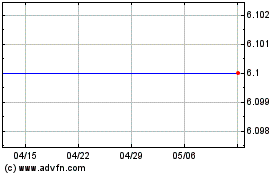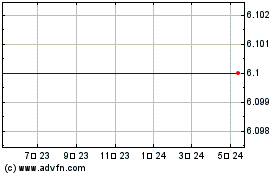Santander Withdraws CEO Job Offer Over Concerns on Compensation -- Update
2019年1月16日 - 9:48AM
Dow Jones News
By Margot Patrick, Dana Cimilluca and Liz Hoffman
Andrea Orcel, one of Europe's highest-profile investment
bankers, found himself out of a job Tuesday, when Spain's Banco
Santander SA said it would be unacceptable to pay him the amount of
money it would have cost to make him chief executive.
Santander said it was canceling Mr. Orcel's September
appointment after finding out how much it would need to compensate
him for shares he would leave behind at his former employer, UBS
Group AG, a figure that people familiar with the matter said was
above EUR50 million ($57.4 million). The amount was more than it
expected and could have become a fuse for anti-bank sentiment in
its home market, people close to the bank said. Spain is still
recovering from a banking crisis a decade ago during which hundreds
or thousands of people lost their homes.
The unusual U-turn highlights the fraught issue of executive
compensation in Europe. It also potentially complicates similar
top-level moves in the future. Banks in the U.K., Switzerland and
European Union defer swaths of bankers' compensation over years,
under post-financial-crisis rules meant to curb short-term risk
taking.
Even more unusually, Mr. Orcel resigned from UBS without
formalizing how much Santander would pay him, people familiar with
his departure from the Swiss bank said. He previously also had
perks in his employment contracts such as a cap on his tax rate,
which Santander hadn't accounted for, one of the people said. Mr.
Orcel offered to forgo a significant chunk of the compensation he
had earned at UBS, the people said. But it recently became clear
that the Spanish bank could ill-afford a substantial make-whole
payment in the current political environment.
Mr. Orcel could still walk away with tens of millions of his UBS
earnings, to be paid mainly by his former employer -- though there
is no guarantee he will.
People familiar with the matter said Santander misunderstood how
much it would have to pay Mr. Orcel in lost compensation, and what
UBS might pay him, a potentially complex calculation that depends
on factors including whether the employee is joining a
competitor.
Some UBS board members were upset by Mr. Orcel's departure, and
the bank ended up taking a hard line in negotiating his exit
package, according to people familiar with the matter.
"This is a matter between Andrea Orcel and Santander," a UBS
spokesman said. "UBS applied the compensation-plan rules relevant
in such cases and made them transparent to all parties before any
decisions were made."
Mr. Orcel resigned from UBS in September to go to Santander, one
of the world's largest retail banks by assets. He knew the bank
well, having helped it acquire targets across the world as
investment banker to late chairman Emilio Botín and Mr. Botín's
daughter-successor, Ana Botín. But the jump into retail banking was
unexpected and signaled Mr. Orcel hadn't been lined up to be UBS's
next CEO, a job he had said he coveted. After failing to get
assurances at UBS, Mr. Orcel responded when Ms. Botín courted him
for the role last summer, people familiar with his hiring said.
But while Mr. Orcel was waiting to start at Santander early this
year, the political climate in Spain, where the minority Socialist
government needs support from the far left, became more inimical to
a big executive-pay deal at the country's largest bank by assets.
There was outrage in the country over a November court ruling that
would have forced customers, instead of banks, to pay the mortgage
stamp duty, leading the government to quickly pass a law forcing
banks to pay it instead.
Mr. Orcel would have succeeded José Antonio Álvarez, who Ms.
Botín wanted to move into another role. Tuesday, she said the
decision not to hire Mr. Orcel was made to "balance the respect we
have for all of our stakeholders" against the cost of hiring a
single individual, "even one as talented as Andrea." Mr. Álvarez
will remain CEO, Santander said.
Banking executives typically expect a new employer to compensate
them for shares and pay they would lose by leaving their firm.
For example, when UBS hired Mr. Orcel from Bank of America
Merrill Lynch in 2012, it paid him $6.3 million in deferred cash
and around 18.5 million Swiss francs ($18.7 million) of UBS shares
to compensate him for forfeited awards. UBS at the time said that
was "in line with market practice."
--Patricia Kowsmann and Rachel Ensign contributed to this
article.
Write to Margot Patrick at margot.patrick@wsj.com, Dana
Cimilluca at dana.cimilluca@wsj.com and Liz Hoffman at
liz.hoffman@wsj.com
(END) Dow Jones Newswires
January 15, 2019 19:33 ET (00:33 GMT)
Copyright (c) 2019 Dow Jones & Company, Inc.
Banco Santander (NYSE:STD)
過去 株価チャート
から 3 2024 まで 4 2024

Banco Santander (NYSE:STD)
過去 株価チャート
から 4 2023 まで 4 2024
